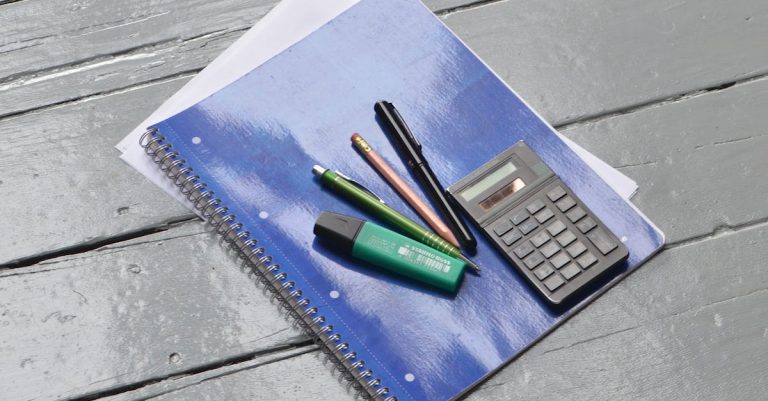Are you considering a career in plumbing and wondering how long it takes to complete the necessary education and training?
If you’re short on time, here’s a quick answer to your question: plumbing school typically takes around 2 years to complete.
In this article, we’ll take a closer look at what plumbing school entails, the different types of programs available, and what you can expect from the training. By the end, you’ll have a better idea of the time commitment required to become a licensed plumber.
What is Plumbing School?
Plumbing school is a training program designed to teach individuals the skills and knowledge necessary to become a licensed plumber. Plumbers are responsible for installing, repairing, and maintaining the pipes, fixtures, and other systems that make up a building’s plumbing system. Plumbing is a highly specialized trade, and plumbing school provides students with the technical knowledge and hands-on experience necessary to succeed in this field.
Overview of plumbing school
Plumbing school typically consists of a combination of classroom instruction and hands-on training. Students learn about the various types of plumbing systems, including water supply, drainage, and venting. They also learn about the tools and equipment used in the plumbing trade, as well as the safety procedures that must be followed when working with plumbing systems.
Plumbing school programs may vary in length depending on the type of program and the level of education. Some programs may be completed in as little as six months, while others may take up to two years to complete.
Types of plumbing programs
There are several types of plumbing programs available, including apprenticeships, certificate programs, and associate degree programs. Apprenticeships typically last four to five years and involve on-the-job training with a licensed plumber, as well as classroom instruction.
Certificate programs are typically shorter and may be completed in as little as six months. These programs provide students with the technical knowledge and skills necessary to work as a plumber, but do not offer the same level of hands-on experience as apprenticeships.
Associate degree programs typically take two years to complete and provide students with a more comprehensive education in plumbing. These programs may include coursework in math, science, and business, as well as hands-on training in plumbing systems.
Skills and knowledge gained in plumbing school
Students in plumbing school gain a variety of skills and knowledge related to the plumbing trade. They learn how to read blueprints and schematics, how to install and repair plumbing systems, and how to use the tools and equipment of the trade.
They also learn about the various types of plumbing systems and the materials used in plumbing, as well as the safety procedures that must be followed when working with plumbing systems. Additionally, students may learn about the business side of plumbing, including how to estimate job costs and manage a plumbing business.
How Long is Plumbing School?
Becoming a plumber requires a combination of classroom instruction, hands-on training, and an apprenticeship. Plumbing school is a great way to get started in this rewarding career. If you’re wondering how long plumbing school takes, this guide will provide you with all the information you need.
Length of plumbing programs
Plumbing programs can vary in length depending on the type of program you choose. Generally, plumbing programs can take anywhere from a few months to a few years to complete.
For example, a certificate program can take as little as six months to complete and provides you with the basic skills you need to get started in the plumbing industry. An associate degree program can take up to two years to complete and provides a more comprehensive education, including additional courses in math, science, and communication.
A bachelor’s degree program in plumbing is not very common, but it is available at some universities. This program can take up to four years to complete and provides an extensive education in plumbing theory and practice.
Factors that affect program length
Several factors can affect the length of a plumbing program. These include:
- Your level of experience and education
- Whether you choose a full-time or part-time program
- The type of program you choose (certificate, associate degree, or bachelor’s degree)
- The requirements of your state or local licensing board
The requirements of your state or local licensing board can have a significant impact on the length of your plumbing program. In some states, you may be required to complete a certain number of hours of classroom instruction, hands-on training, and apprenticeship before you can become a licensed plumber.
Comparison of different plumbing programs
Certificate program: A certificate program can take as little as six months to complete and provides you with the basic skills you need to get started in the plumbing industry. This program is ideal for individuals who want to get started in plumbing quickly.
Associate degree program: An associate degree program can take up to two years to complete and provides a more comprehensive education, including additional courses in math, science, and communication. This program is ideal for individuals who want to advance their plumbing career.
Bachelor’s degree program: A bachelor’s degree program in plumbing is not very common, but it is available at some universities. This program can take up to four years to complete and provides an extensive education in plumbing theory and practice. This program is ideal for individuals who want to become experts in the plumbing industry.
It’s important to choose a plumbing program that meets your needs and career goals. Research different programs and talk to professionals in the plumbing industry to determine which program is right for you.
What to Expect from Plumbing School?
Plumbing is a highly skilled trade that requires a combination of classroom instruction, hands-on training, and on-the-job experience. If you are considering a career in plumbing, you may be wondering what to expect from plumbing school. In this article, we will take a closer look at the different aspects of plumbing school and what you can expect as a student.
Classroom Instruction
One of the first things you can expect from plumbing school is classroom instruction. This will typically involve learning about the various systems and components of plumbing, including pipes, fixtures, valves, and pumps. You may also learn about safety procedures, building codes, and the different types of materials used in the plumbing industry.
Classroom instruction may also cover topics such as business management, customer service, and communication skills. These are important skills for anyone who wants to run their own plumbing business or work in a customer-facing role.
Hands-on Training
In addition to classroom instruction, plumbing school will also provide you with hands-on training. This is where you will have the opportunity to put your theoretical knowledge into practice and develop your practical skills.
Hands-on training may involve working with different types of tools and equipment, installing and repairing plumbing systems, and troubleshooting common plumbing problems. You may also learn about the different types of materials used in plumbing and how to select the right materials for different applications.
Apprenticeships and On-the-Job Experience
Another important aspect of plumbing school is apprenticeships and on-the-job experience. This is where you will have the opportunity to work alongside experienced plumbers and gain practical experience in a real-world setting.
Apprenticeships generally last between 3-5 years and involve a combination of classroom instruction and on-the-job training. During this time, you will work under the supervision of a licensed plumber and learn about the different aspects of the plumbing trade.
On-the-job experience is also important for developing your skills and gaining valuable experience in the field. This may involve working as an apprentice or as a journeyman plumber, depending on your level of experience.
Conclusion
Requirements for Becoming a Licensed Plumber
Education and Training Requirements
To become a licensed plumber, you need to have a high school diploma or equivalent and complete formal training in plumbing. Plumbing programs are available at trade schools, technical colleges, and community colleges, typically taking anywhere from 6 months to 2 years to complete. You will learn about plumbing systems, safety procedures, regulations, and codes. Some programs also offer apprenticeship opportunities where you can gain hands-on experience under the supervision of a licensed plumber.
Licensing and Certification
After completing your education and training, you will need to obtain a license from your state’s licensing board. The requirements for licensure vary by state, but typically involve passing an exam that tests your knowledge of the plumbing trade and local regulations. In addition to licensing, you may also want to consider becoming certified by a professional organization such as the National Inspection Testing Certification (NITC) or the Plumbing-Heating-Cooling Contractors Association (PHCC). Certification can demonstrate your expertise and help you stand out to potential clients or employers.
Continuing Education and Professional Development
Once you have obtained your license and certification, it’s important to continue your education and professional development. Plumbing technology and regulations are constantly evolving, so staying up-to-date on the latest developments is essential for success in the field. There are various ways to continue your education, including attending industry conferences, participating in online courses, and joining professional organizations. Not only can continuing education help you stay current in your knowledge and skills, but it can also help you advance your career and increase your earning potential.
Career Opportunities for Licensed Plumbers
If you are interested in becoming a plumber, you may be wondering about the career opportunities available to you. The good news is that the plumbing industry is growing, and there are many job opportunities for licensed plumbers.
Job outlook for plumbers
The Bureau of Labor Statistics expects employment in the plumbing industry to grow by 16% from 2016 to 2026, much faster than the average for all occupations. This growth is due to new construction and the need to maintain and repair existing plumbing systems. Plumbers will be needed to install and maintain new piping systems, as well as repair old and damaged pipes.
Plumbers who are skilled in green technologies, such as solar water heating and rainwater harvesting, may also see an increase in job opportunities as more people look for ways to conserve water and reduce their environmental impact.
Salary expectations for licensed plumbers
The average annual salary for a licensed plumber is around $55,000, according to the Bureau of Labor Statistics. However, this can vary depending on a number of factors, such as your location, experience, and the type of plumbing work you do.
Plumbers who work for large construction companies or government agencies tend to earn higher salaries, while those who work for small businesses or as self-employed contractors may earn less but have more flexibility in their work schedules.
Specializations within the plumbing industry
There are several specializations within the plumbing industry that you can pursue as a licensed plumber. These include:
- Residential plumbing: This involves installing and maintaining plumbing systems in homes and apartments.
- Commercial plumbing: This involves working on larger plumbing systems in commercial buildings, such as office buildings and hospitals.
- Industrial plumbing: This involves working on plumbing systems in factories and other industrial settings.
- Service and repair: This involves repairing and maintaining plumbing systems in homes and businesses.
There are also opportunities to specialize in specific types of plumbing systems, such as fire suppression systems or radiant heating systems. By specializing in a particular area, you can develop a unique set of skills and become an expert in your field.
Conclusion
Plumbing school is a significant investment of time and effort, but it can lead to a rewarding and well-paying career. By understanding the different types of programs available, what they entail, and the requirements for becoming a licensed plumber, you can make an informed decision about whether plumbing school is right for you.
Whether you’re just starting out or looking to advance your career, the knowledge and skills gained from plumbing school can open up a world of opportunities in the plumbing industry.






